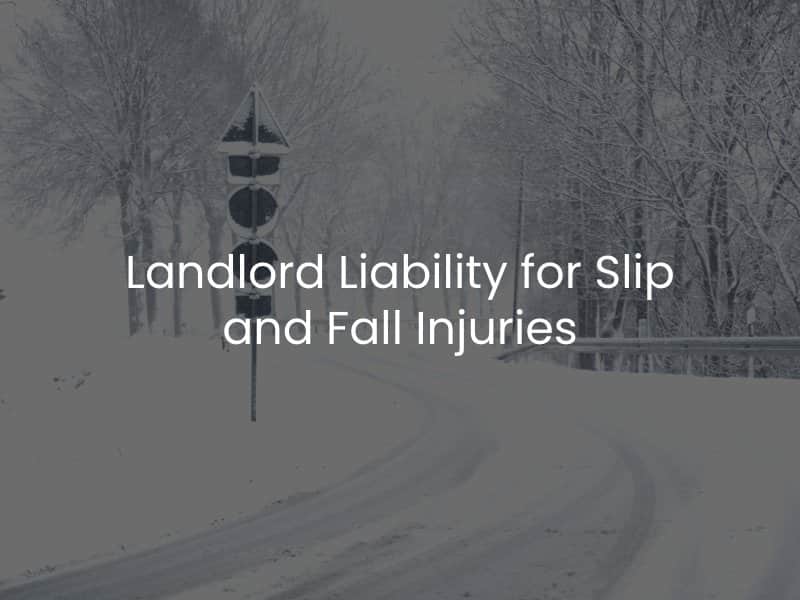Landlord Liability for Slip and Fall Injuries
Slip and fall injuries can lead to significant setbacks for victims. Unfortunately, slip and fall accidents are not uncommon, and the careless or negligent actions of property owners often contribute directly to these incidents.
But, can a landlord be held responsible for slip and fall injuries to a tenant or someone else on the property?
Here, our premises liability lawyers want to discuss landlord liability for slip and fall injuries in California. These incidents can become very nuanced premises liability claims, and it is important to understand who has control of what when it comes to the property in question.

Negligence in a Slip and Fall Case
For any personal injury case, including slip and fall injuries, it should be shown that the at-fault party was negligent in some way. In other words, an injury victim will have to establish a few elements, namely showing that:
- Someone owed the injury victim a duty of care
- There was a breach of duty of care in some way
- The breach of duty directly caused the injuries
- There was some sort of quantifiable damages to the injury victim
However, when we are talking about a rental situation where there is a landlord and a tenant, establishing who had a duty of care can be difficult. If you sustain an injury at a friend’s house, and the friend is renting the house from someone else, who is responsible – the tenant or the landlord?
A Slip and Fall Inside a Rental Unit
If a slip and fall incident occurs inside of a rental unit due to something that is in control of the tenant, liability may very well fall to the tenant. For example, if there is a spill of food or drink inside a rental unit, there is no way the landlord would know about this. The tenant would likely be to blame.
However, what if there is a leak in the ceiling that caused accumulation of fluid, leading to a slip and fall injury? In this situation, this would entirely revolve around whether or not the landlord knew about the leak. If the landlord did not know about the leak because they were not notified by the tenant, it is unlikely that liability would fall to the landlord in any way. However, if the landlord knew about the leak and failed to promptly fix the problem, they may indeed hold liability for a slip and fall injury.
A Slip and Fall Outside a Rental Unit (or in Common Areas)
Slip and fall injuries can also occur outside of a rental unit, often in a “common area.” For example, let us suppose that an area of sidewalk outside of a rental unit regularly accumulates water, and when dried, there is a slick algae patch as a result of the water accumulation. In this situation, the landlord’s liability will depend on what the lease between the tenant and the landlord says. If the lease says that a tenant is responsible for the upkeep of various areas around the rental unit, then the landlord will likely not be responsible if a slip and fall injury occurs on the algae patch (or a slip and fall that occurs in any other areas where the tenant is supposed to maintain upkeep).